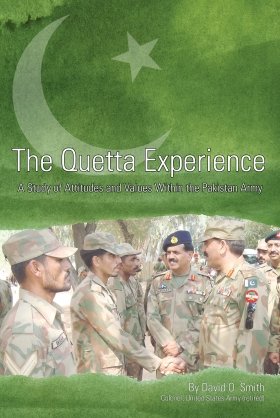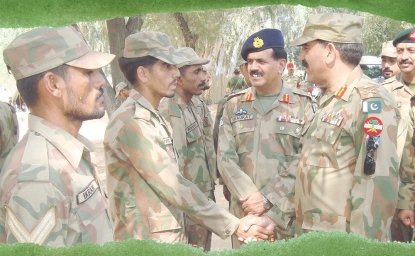The Quetta Experience: Attitudes and Values within Pakistan's Army


The Pakistani Army has long been a challenging yet critical partner for the US government.
On the one hand, Washington views it as the architect of policies that are deeply problematic for the United States. These policies include the development and production of nuclear weapons, and the provision of safe havens for terrorists that target American soldiers across the border in Afghanistan. Despite Washington’s efforts to get Pakistan to alter these policies, they have remained in place for several decades.
At the same time, the Pakistani Army is a key US interlocutor. This is due to the Army’s strong influence on Pakistani politics, and to its powerful role managing policy toward America. According to the US government’s calculus, Washington cannot afford not to work with such a powerful player in a nation critical to American interests. Accordingly, while the United States supports civilian institutions in Pakistan—particularly through development assistance programs and its engagement with the Pakistani civilian leadership—military-to-military ties play a major role in the US-Pakistan relationship.
For these reasons, it is helpful to know what members of the Pakistani Army think. For example, what are their values; what are their attitudes toward the United States and other key countries; how do they perceive internal and external threats; what are their thoughts on Pakistan’s political situation; what do they think about Pakistan’s nuclear weapons program; and how do these perspectives differ, if at all, within the Army and over time. Given the sensitivity of many of these issues, getting answers to these questions is not easy. To that end, this new study by David O. Smith represents an invaluable addition to the literature. It offers a revealing window into the thinking of three groups of Pakistani Army officers—senior officers (brigadier
and major generals); senior mid-level officers (lieutenant colonels and colonels); and junior mid-level officers (captains and majors)—who served at the Pakistan Army Command and Staff College in the city of Quetta between 1977 and 2014. The study is based on the experiences and observations of American military officers—including Smith himself—who attended the facility as students over that 37-year period.
Image: Asianet-Pakistan/Shutterstock
The Quetta Experience: A St... by The Wilson Center on Scribd
Author

Indo-Pacific Program
The Indo-Pacific Program promotes policy debate and intellectual discussions on US interests in the Asia-Pacific as well as political, economic, security, and social issues relating to the world’s most populous and economically dynamic region. Read more




